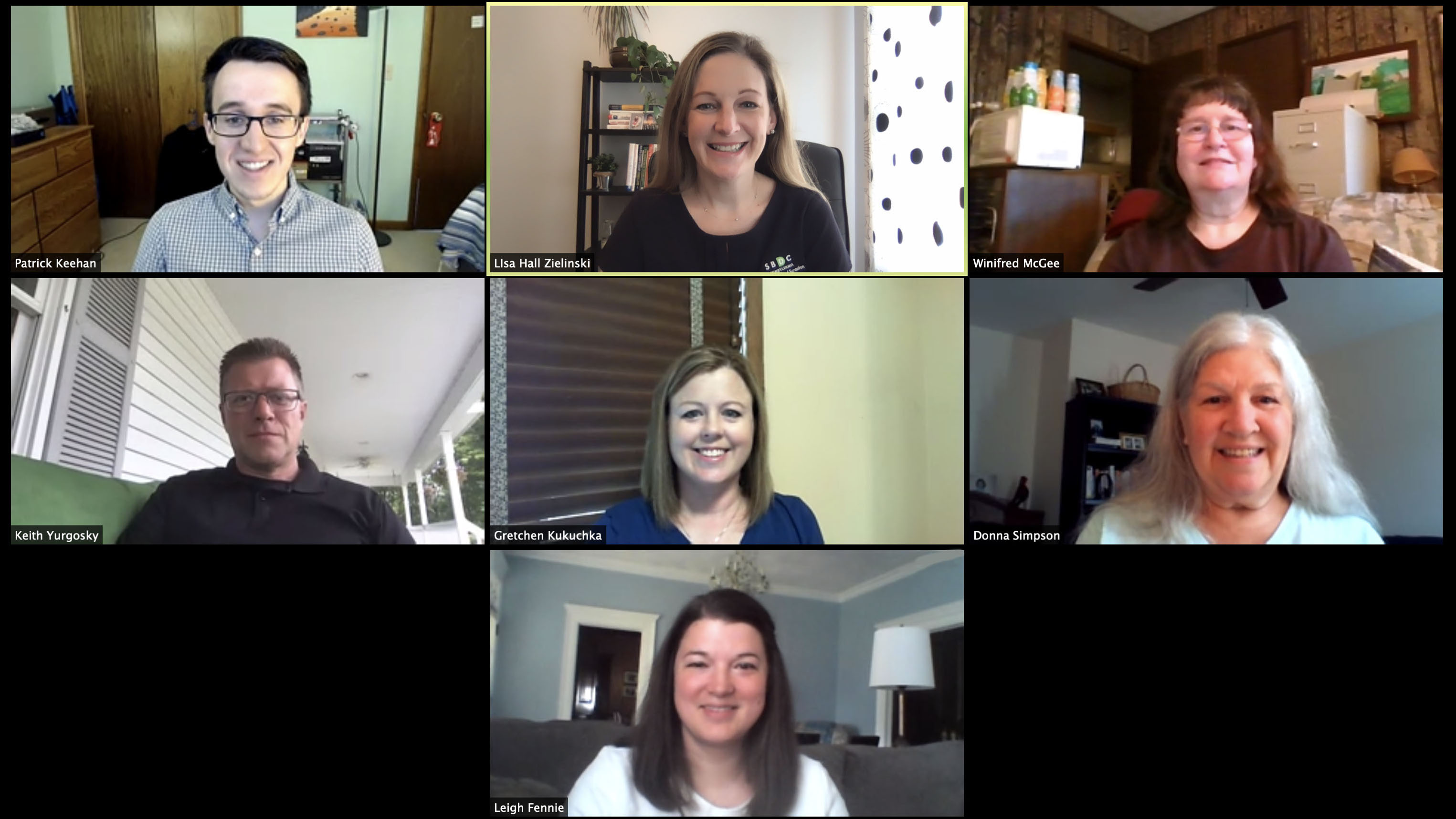The University of Scranton SBDC: Serving Regional Small Businesses During COVID

While the COVID-19 pandemic may have halted many businesses, The University of Scranton Small Business Development Center (SBDC) team has been working diligently to support our region’s small business community. Now housed in the Kania School of Management, the SBDC has been hosted by The University of Scranton for more than 40 years, offering services at no cost to assist small businesses with their needs, including responding to the COVID-19 crisis.
“We were able to answer a lot of questions from our clients about disaster assistance and help them when it mattered,” said Keith Yurgosky, one of the center’s small business consultants. “It made people feel good that they got to speak to a live person versus landing up in voicemail or having to stay on hold for hours on end.”
While working directly with clients and helping them navigate what the “new normal” could look like for their business was a major part of what the SBDC did during the days of Pennsylvania’s statewide lockdown, the staff also felt it was imperative to create programming and additional community collaborations so that business owners could consistently feel bolstered in their efforts to stay afloat and eventually reopen. Each SBDC staff member focused on specific client and community relations so that the full center could address as many business needs as possible.
Donna Simpson, the center’s consultant manager, handled client intake due to the sudden influx of businesses seeking the SBDC’s services — in fact, statewide totals showed that in a three-day period at the onset of the COVID-19 crisis, 900 new clients signed up for SBDC services across the Commonwealth.
“People had a lot of mixed feelings,” she said. “They were angry or sad, they were also scared or uncertain. This time was tough for a lot of business owners. We wanted to be sure they knew someone was there for them and we wanted to be sure that we could help them as quickly as possible.”
After intake, clients would be referred to one of the center’s small business consultants for further individualized assistance. When not specifically assisting clients, the consultants worked in other ways to get the word out that the SBDC was ready to help businesses however they could.
For Keith Yurgosky, part of this was participating in webinars and town halls, such as with Congressman Matt Cartwright and with Susquehanna Borough.
“The goal was just getting the word out to business owners that help was available,” he said. “I also participated in webinars, such as one with Intuit on resources for small businesses to help them turn virtual, and one with Ebay with their small business network. My roles with those webinars was the same— letting as many people as possible know what’s out there and getting the word out as soon as more business funding became available.”
As business consultant Gretchen Kukuchka explained, the main goal during the lockdown was to continue building the relationships that the SBDC had meticulously cultivated during pre-COVID-19 life.
“Our role as consultants is to create relationships,” she said. “Oftentimes, just through conversations, we’re able to help clients on many different levels. We all reached out to the different communities that we serve during this time and we all created ways to bring what’s out there back home to them. We were finding that our clients were overwhelmed because there was so much out there, so we created a series of tip sheets to help them not feel flooded with information during such a critical time. We all have been trying to do what we could to keep the information flowing.”
One of the ways the SBDC has been keeping the information flowing is through a series of virtual drop-ins for businesses via their social media channels. Featuring live question-and-answer sessions, these events were meant to help businesses navigate through COVID-19 via consulting with the center and small-group networking with other business owners.
“This was something that we came up with that was immediate, so that area small businesses knew we were listening,” said business consultant Leigh Fennie, who, along with Keith Yurgosky, was one of the facilitators for the events. “Anyone could come to these events. We made it so that people who had questions knew we’d be there to answer them and so that people who might just want to listen would know they were welcome. Participants didn’t necessarily have to be clients of ours, they could just be area business owners who wanted to see what was happening. We were happy to do this for our community.”
“We also spent time reaching out to our outreach partners, like chambers of commerce and other economic development institutions,” she added. “We wanted to stress to them that we’re here and we’re available and if they had clients looking for assistance, we could walk them through the process. We wanted it to be a clear message that we’re here to serve.”
The University of Scranton SBDC’s professional business consultants are available to meet with startup and existing for-profit small businesses at no cost by phone or real-time video conferencing. For more information, visit scrantonsbdc.com.






